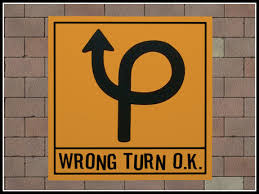

Recently I received the results of my comprehensive strategic leadership survey and 360 assessment. The results allowed me not only to see my shortcomings as a leader, but also areas of untapped leadership potential.
One comment stood out: “Wilson embraces being wrong.”
Within Army culture, being wrong and failure are synonymous, so I took this comment to heart.
However, after giving it more thought, the comment reflects the evolution of my leadership philosophy as my responsibilities expand. I am no longer leading small teams and units comprised solely of soldiers. Rather, today I am working in larger organizations staffed by a diverse workforce and engaged with external agencies.
As a young leader, I was focused upon the performance of my organization and obsessed with perfecting the rational decision making process. Today, I see less value in the development of decision making systems than in bringing together a broad set of stakeholders within and external to the organization to manage problems toward desired outcomes.
As a young leader, I sat at the top of a hierarchical Army organization and used centralized control to guide the team. Today, I see myself as a member of a strategic enterprise working together to solve problems in a complex and volatile environment. As such, I view the development of learning organizations, as described in Senge’s The Fifth Discipline, and decentralization as essential to achieving organizational goals.
This is where embracing of “being wrong” can serve as a positive attribute for public service leaders operating in complex environments. Katherine Schulz, author of Being Wrong, argued that the insatiable pursuit of being right can have a corrosive effect upon organizations. Alternatively, self-aware leaders who recognize their own limitations are more likely to find ways to tap into the collective power of the team to accomplish goals.